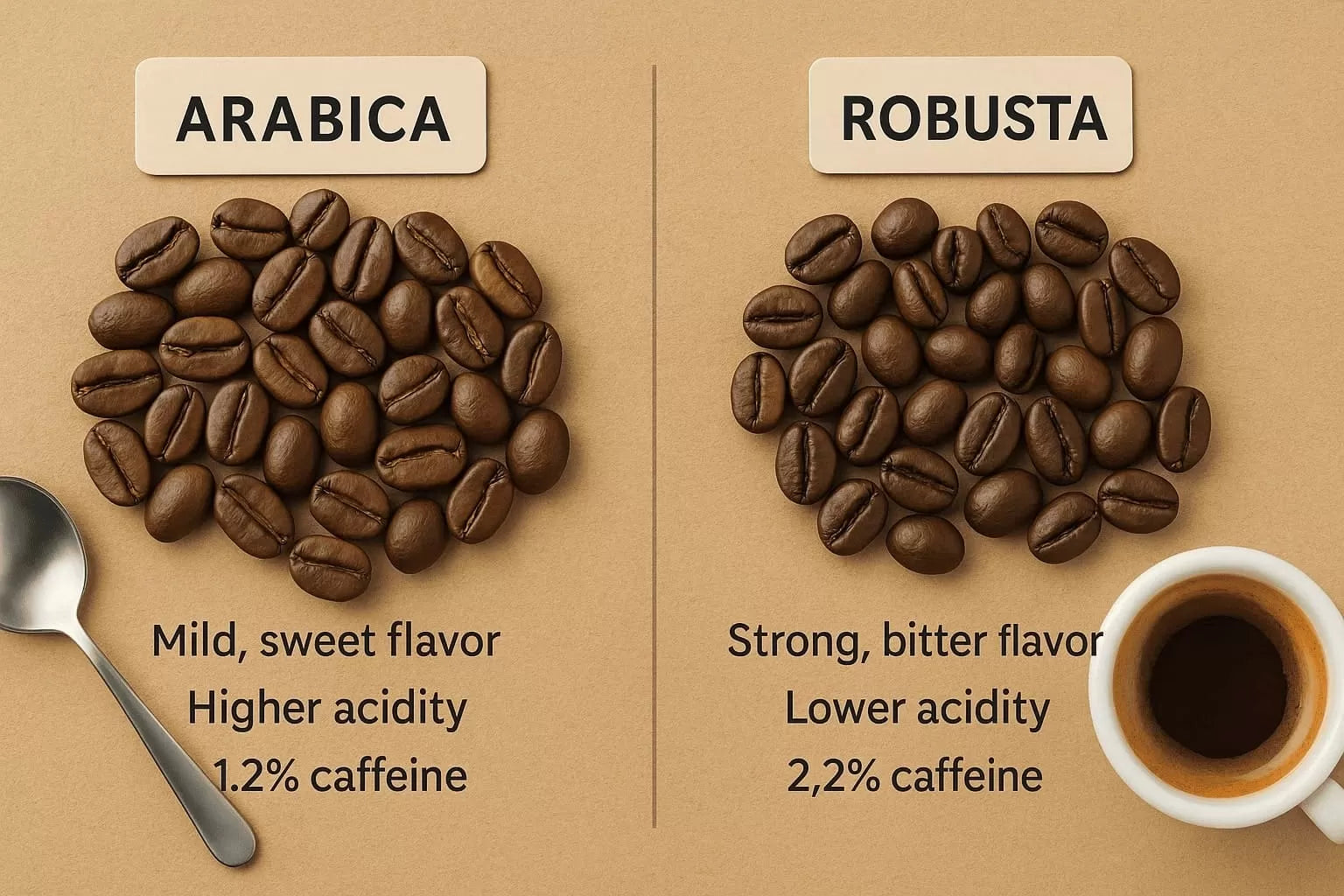☕ Health Benefits of Coffee (According to Science)
For many of us, coffee isn’t just a drink — it’s a ritual. That first sip in the morning, the smell of freshly ground beans, the comfort of holding a warm cup. But beyond the flavor and aroma, coffee hides something even more fascinating: real, science-backed health benefits.
Let’s dive into what research says about why your daily brew might actually be doing your body (and mind) some good.
🌱 Why Coffee Can Be Good for You
Coffee is packed with bioactive compounds — natural substances that can have positive effects on your health.
Among the most important are:
-
Caffeine, which stimulates your brain and boosts alertness.
-
Antioxidants, such as chlorogenic acid, that help fight inflammation and protect your cells.
-
Minerals like magnesium and potassium, which support energy production and muscle function.
When consumed in moderation, these compounds can make coffee more than just a pick-me-up — it becomes a powerful ally for your overall well-being.
🧠 Scientifically Proven Benefits of Coffee
1. Boosts mental focus and energy
Caffeine blocks adenosine, the neurotransmitter that makes you feel tired. The result? More focus, sharper memory, and better concentration. That’s why many people feel instantly more “awake” after a single cup.
Several studies have shown that moderate coffee intake (2–3 cups a day) can improve cognitive performance, reaction time, and even mood.
2. May reduce the risk of neurodegenerative diseases
Regular coffee drinkers seem to have a lower risk of Alzheimer’s and Parkinson’s disease.
Researchers believe that antioxidants and caffeine protect brain cells from damage and reduce inflammation — two key factors linked to these conditions.
In other words, your morning coffee might be helping your brain stay healthier for longer.
3. Supports metabolism and fat burning
Caffeine slightly increases your metabolic rate, helping your body burn more calories even at rest.
That’s one reason it’s often found in natural fat-burning supplements.
Of course, it’s not a magic weight-loss drink — but combined with a healthy diet and exercise, coffee can give your metabolism a gentle nudge.
4. Protects your liver
If you love coffee, here’s great news: research suggests that drinking 2–4 cups a day is linked to a lower risk of liver diseases like cirrhosis and fatty liver.
Coffee seems to help the liver regulate enzymes and prevent the buildup of harmful fat.
5. Lowers the risk of certain diseases
Moderate coffee consumption has also been associated with a reduced risk of type 2 diabetes and some heart conditions.
Its anti-inflammatory and antioxidant properties may play a key role in keeping blood vessels healthy and improving insulin sensitivity.
☕ How Much Coffee Is Healthy?
The magic number, according to most experts, is up to 400 mg of caffeine per day — roughly 3 to 4 cups of brewed coffee.
Of course, everyone reacts differently.
If you’re sensitive to caffeine, prone to anxiety, or have trouble sleeping, it’s better to keep it lighter or choose decaf coffee (which still has antioxidants, just less caffeine).
Pregnant people or those with specific health conditions should consult their doctor for personalized advice.
💤 Can Too Much Coffee Be Harmful?
Like anything good, balance is key.
Too much caffeine can lead to:
-
Insomnia or restless sleep
-
Increased heart rate
-
Nervousness or jitteriness
-
Upset stomach
To keep your routine healthy, try to avoid drinking coffee late in the afternoon and pay attention to how your body responds.
☕ What About Decaf — Does It Still Have Benefits?
Yes! Even without caffeine, decaf coffee still contains most of the antioxidants and nutrients found in regular coffee.
It’s a great option if you want the flavor and ritual without the stimulating effects.
💭 Final Thoughts: Enjoy Your Coffee Mindfully
Coffee is more than just a drink — it’s comfort, culture, and chemistry in one cup.
And now you know it’s also a friend to your health (in moderation, of course).
So next time you sip your favorite brew, enjoy it guilt-free — science says you’re probably doing something good for yourself.
❓ Frequently Asked Questions
How many cups of coffee per day are healthy?
Most people can safely enjoy 3 to 4 cups a day — about 400 mg of caffeine.
Does coffee help with weight loss?
It can slightly boost metabolism, but it’s not a substitute for healthy habits.
Can coffee raise blood pressure?
It can cause a short-term increase, but regular moderate consumption is generally safe for most people.




Leave a comment
This site is protected by hCaptcha and the hCaptcha Privacy Policy and Terms of Service apply.